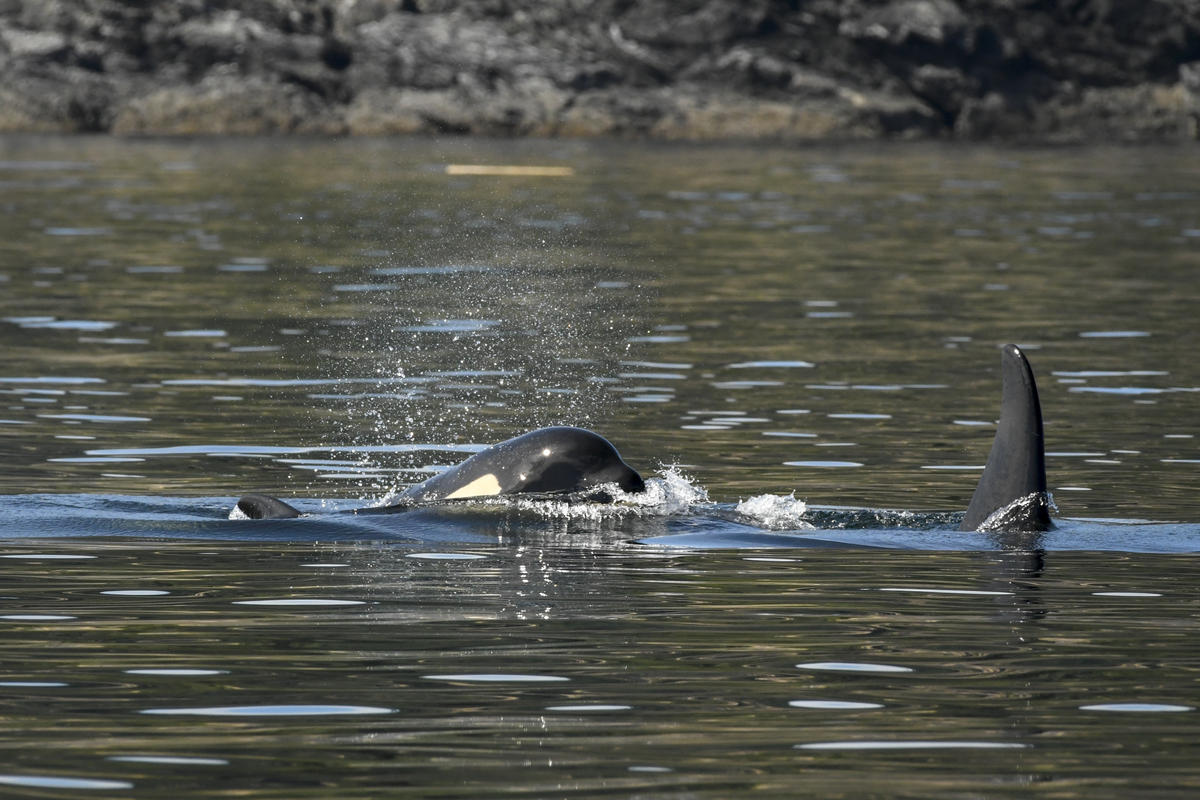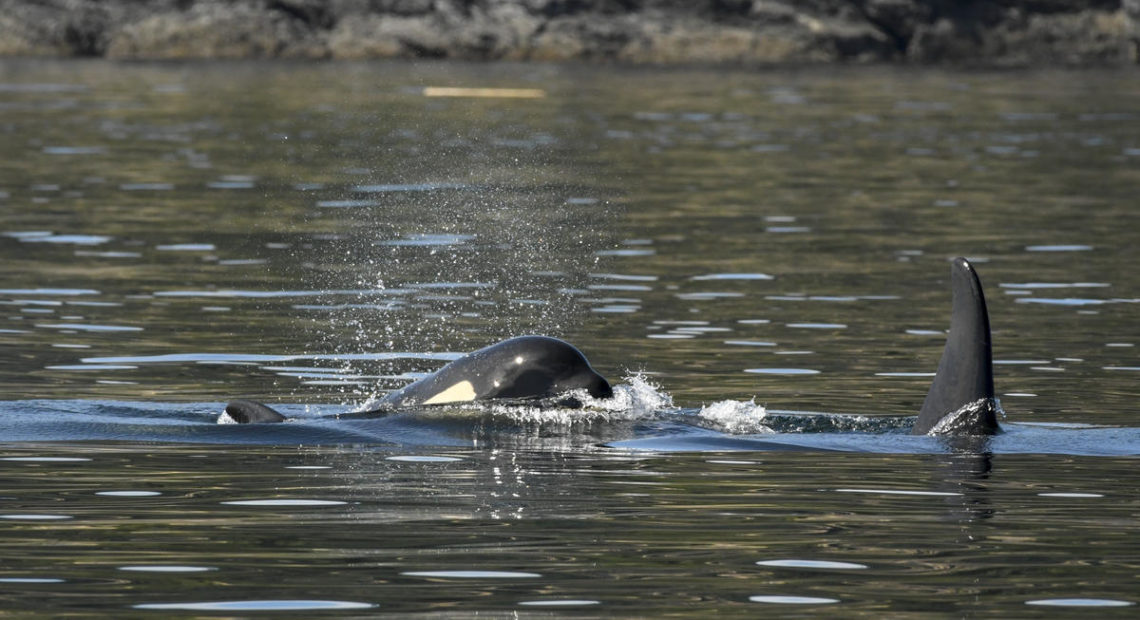
Group Hatches Plan To Save Emaciated And Endangered Puget Sound Orca
Listen
An emaciated, four-year-old Puget Sound orca is drawing alarm.
NOAA Fisheries spokesman Michael Milstein said feeding live Chinook salmon to the female orca, possibly laced with medication, is being considered.
“We want to do this very carefully and deliberately because we don’t want to go into a situation where we’re creating an animal that becomes dependent on human handouts for food,” Milstein said. “That’s certainly not a recipe for survival in the wild, so we have to be very careful not to go down that road.”
Whale scientists and the federal agency are weighing what it means to provide food and medicine to this endangered orca. The declining health of the orca has become apparent as it swims and feeds in the border waters between Washington state and British Columbia.
The four-year-old female is a younger member of the same killer whale family that’s been in the news because of a mother orca who persists in tending to her dead calf. The youngster is showing signs of starvation and infection.
Before a decision to intervene is taken, researchers in boats are trying to get a better handle on what’s wrong with the young orca, known as J50. They have a drone ready to capture full body shots from above and also want to collect fecal and breath samples for analysis.
An earlier attempt in late July to collect droplets of breath using a long boom held over J50’s blowhole yielded too small of a sample to provide a definitive diagnosis.
“We’ve been watching J50 now for a few weeks and watching her condition seem to deteriorate, so there’s been increasing concern about that,” Milstein said in an interview Friday. “The feeling is that if we’re going to do something, we need to do it soon.”
Milstein said J-pod was making the urgent data collection task difficult on Friday by disappearing from sight. He said the family group was last seen Thursday afternoon headed out the Strait of Juan de Fuca toward the west coast of Vancouver Island.
Whale scientists also want to collect the dead calf of the seemingly grieving mother, J35, to do a necropsy if possible. That could reveal why the newborn died about a half-hour after birth.
The critically endangered population of Southern Resident killer whales is down to 75 individuals. As a young female, J50 holds particularly high value because of her “reproductive capacity to the population,” Milstein said.
Against this backdrop, a Southern Resident Killer Whale Recovery Task Force convened by Washington Gov. Jay Inslee in March meets in Wenatchee Tuesday to formulate short and long term recommendations. The task force wants to address the major factors affecting orca survival of lack of prey, environmental contaminants and disturbance by vessels.
Possible recommendations could include further restrictions on salmon fishing, speed limits for ferries to reduce underwater noise and increased hatchery production of Chinook salmon. The recommendations will be finalized in the fall.
Related Stories:
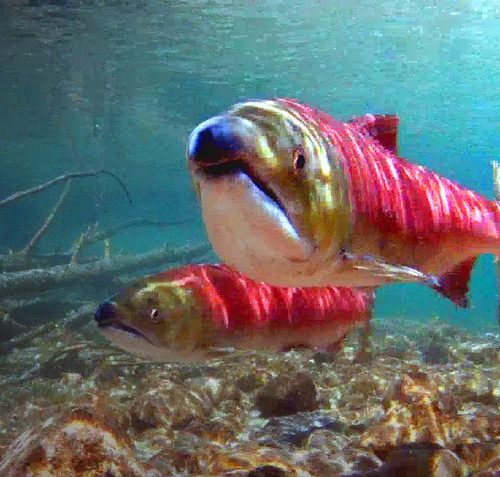
Tribal members gather to demand U.S. Government fulfill treaty obligations
Sockeye salmon like these are among the salmon species in peril. (Credit: Aaron Kunz) Listen (Runtime 2:57) Read For Northwest tribes, removing the four lower Snake River dams means more
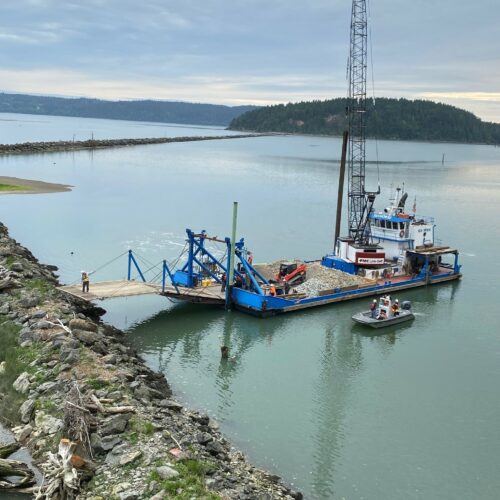
Dead salmon prompt Army Corps of Engineers to repair Skagit River jetty
The Army Corps of Engineers began emergency repair work May 22 on a jetty that sits at the mouth of the Skagit River’s North Fork, near La Conner.
Crews will use cobble and sediment to essentially plug porous areas of the McGlinn Island Jetty. Those gaps have stranded, harmed or killed out-migrating juvenile salmon this spring, according to a press release from the Swinomish Indian Tribal Community.
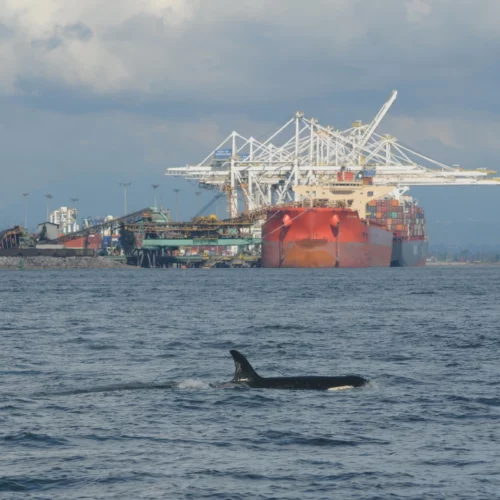
Captains of big ships eased up on the throttle during trial slowdown to help endangered orcas
The majority of captains of big commercial ships entering and leaving Puget Sound are cooperating with a request to slow down temporarily to reduce underwater noise impacts to the Pacific Northwest’s critically endangered killer whales. The duration of the experimental slowdown – modeled on a similar project in British Columbia – will be extended into the new year, organizers announced after a status report and celebration on the Seattle waterfront Friday.

